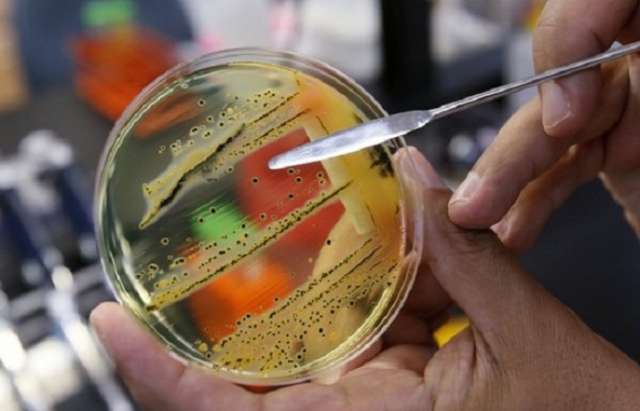If antibiotics lose their effectiveness, key medical procedures – including organ transplantation, caesarean sections, joint replacements and chemotherapy – could become too dangerous to perform.
About 700,000 people around the world die annually due to drug-resistant infections and, if no action is taken, it has been estimated that such infections will kill 10m people a year by 2050.
Now, the WHO has come up with a list of antibiotic-resistant “priority pathogens” – 12 families of bacteria that pose the greatest threat to human health.
Medical research charity the Wellcome Trust said that the list was important to steer research into new antibiotics.
The WHO said the 12 bacteria have built-in abilities to find new ways to resist treatment and can pass along genetic material that allows other bacteria to become drug-resistant as well.
The list categorises bacteria into critical, high and medium priority groups, according to the urgency of need for new antibiotics.
The most critical group includes multi-drug resistant bacteria that pose a particular threat in hospitals and nursing homes. The bacteria on this list can cause severe and often deadly infections such as bloodstream infections and pneumonia. Other increasingly drug-resistant bacteria, which are deemed high and medium priority, cause more common diseases such as gonorrhoea and food poisoning caused by salmonella.
“This list is a new tool to ensure R&D [research and development] responds to urgent public health needs,” said Dr Marie-Paule Kieny, WHO’s assistant director-general for health systems and innovation.
“Antibiotic resistance is growing and we are fast running out of treatment options. If we leave it to market forces alone, the new antibiotics we most urgently need are not going to be developed in time.”
Advertisement
The WHO said that it hoped the list would spur governments to put in place policies to incentivise the development of new drugs.
Experts came up with the list by examining a number of criteria, including how deadly the infections the bacteria cause are and whether new antibiotics to treat them are already in the pipeline.
Some bacteria were not included in the list. The WHO said there was already dedicated programmes working on drug-resistant tuberculosis. Other bacteria, including streptococcus A and B and chlamydia, were also omitted because they do not currently pose a significant public health threat.
Commenting on the publication of the list, Tim Jinks, head of drug resistant infections at the Wellcome Trust, said: “This priority pathogens list, developed with input from across our community, is important to steer research in the race against drug resistant infection – one of the greatest threats to modern health.
“Without effective drugs, doctors cannot treat patients. Within a generation, without new antibiotics, deaths from drug resistant infection could reach 10m a year. Without new medicines to treat deadly infection, lifesaving treatments like chemotherapy and organ transplant, and routine operations like caesareans and hip replacements will be potentially fatal.”
The WHO list
Three bacteria are considered to be of critical priority:
Pseudomonas aeruginosa, carbapenem-resistant
Enterobacteriaceae, carbapenem-resistant, ESBL-producing
Acinetobacter baumannii, carbapenem-resistant
Six are considered to be of high priority:
Enterococcus faecium, vancomycin-resistant
Staphylococcus aureus, methicillin-resistant, vancomycin-intermediate and resistant
Helicobacter pylori, clarithromycin-resistant
several species of Campylobacter, fluoroquinolone-resistant
Salmonellae, fluoroquinolone-resistant
Neisseria gonorrhoeae, cephalosporin-resistant, fluoroquinolone-resistant
Three are deemed to be of medium priority:
Streptococcus pneumoniae, penicillin-non-susceptible
Several species of Shigella, fluoroquinolone-resistant
More about:
















































